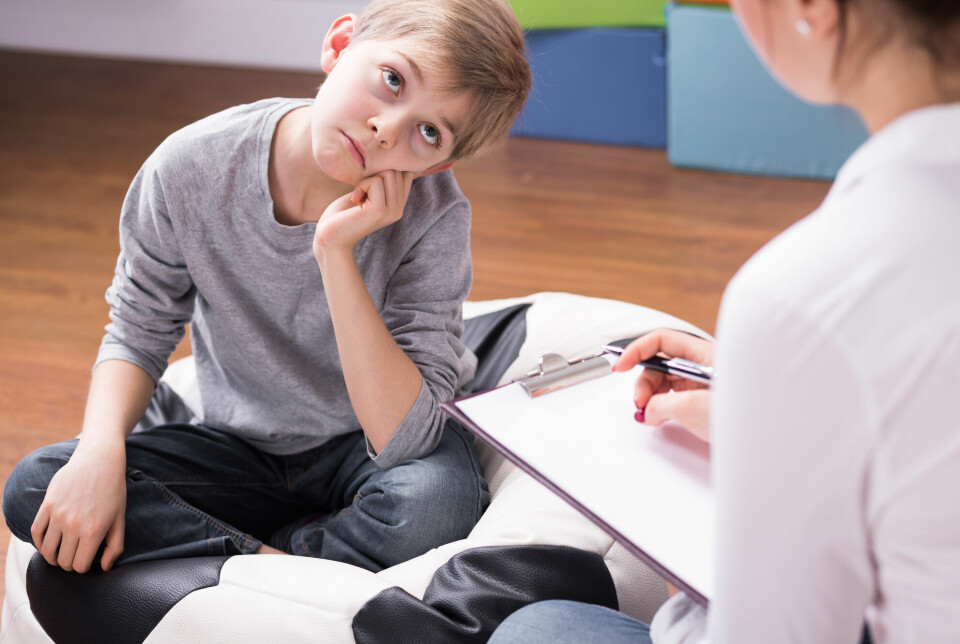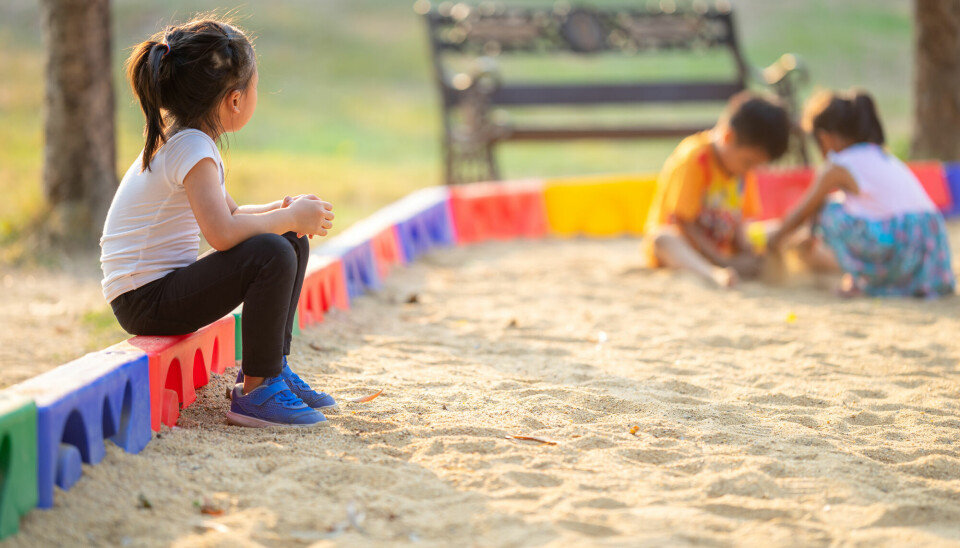
Researcher: Personality is a lottery that affects how we perform in school
Researchers have looked at siblings with different personalities to find out what works best – and worst – in the classroom.
There is little we can do about our personality. It develops from the day we are born, but neither parents nor society influence it to a significant extent.
“Personality is a bit of a lottery,” says researcher Eivind Ystrøm. "And this lottery affects how we perform at school."
However, there are steps we can take. It involves managing our own personality and that of our children effectively.
The school environment is crucial in this regard, as highlighted by two researchers in the field.
The Big Five
How is school performance influenced by our personality? Which personality traits are most beneficial for success in school? And to what extent are these traits shaped by our environment and parents?
Researchers from the University of Oslo, among others, have looked into this. They recently published a study in Journal of Personality.
They based their research on the Big Five personality traits: Neuroticism, extraversion, openness, agreeableness, and conscientiousness.
These are personality traits that all people have to a greater or lesser extent.
“Personality is closely related to coping strategies, how you solve challenges, and negative emotions, Ystrøm tells sciencenorway.no.
He and his colleagues have come to the same conclusion as previous studies have shown, namely that children who score high on neuroticism perform worse in school than others.
A slightly different method
To find this out, Ystrøm and his colleagues used data from the Norwegian Mother, Father and Child Cohort Study (MoBa). This is one of the world's largest health studies, with 114,000 children, 95,000 mothers, and 75,000 fathers participating.
Nearly 10,000 children were included in this study.
The researchers investigated the relationship between school achievements and personality traits, focusing on performance in reading, mathematics, and language.
Additionally, they examined the so-called sibling effect. This was to exclude other explanatory factors, such as family and upbringing.
“There are studies that have previously shown that personality and how you perform in school are related. So, this isn’t entirely new,” says Ystrøm.
“What is new is that we are comparing siblings with different personalities.”
It concerns the individual
Through this approach, the researchers can look at personality independently of the upbringing environment.
“When we consider siblings with different personalities, any potential influence from the mother and father disappears,” says Ystrøm.
Therefore, the study disregarded factors related to the parents – where the children lived, which school they attended, the parents’ education, finances, and so on.
“What we found is that the environment in which one grows up doesn't affect one's personality. Rather, it's about the individual,” Ystrøm says.

In a previous article on forskning.no, Ystrøm explains how our genes largely determine our personality and that upbringing probably has minimal impact.
Extraversion has minimal impact on academic performance
Consider the major personality trait of extraversion, which ranges from introverted to extroverted.
Extroverts thrive in social settings and are energised by interactions with others, whereas introverts find these same situations draining.
“It could be assumed that extroverts would benefit from better interactions with teachers and classmates, leading to enhanced learning and, consequently, improved scores on standardised tests,” Ystrøm says.
However, that was not the case. What surprised the researchers was that these traits were not associated with performing well or poorly in school.
“In our society, being extroverted is often seen as something very positive. However, it turns out that it doesn't significantly affect your chances of academic success,” he says.
Openness and conscientiousness are best
Of the Big Five personality traits, openness and conscientiousness appeared to have the best effect on academic results.
Openness reflects how you embrace new experiences. It also relates to the joy of playing with ideas, openness to ideas and experiences, and your ability you to appreciate aesthetics, such as music and culture.
“Being curious and interested in new knowledge correlates strongly with performing well in school,” Ystrøm says.
Conscientiousness involves how tidy, orderly, conscientious, and organised you are – and whether you are reliable. People with high ambitions often score high in conscientiousness. It is perhaps not so surprising that this trait offers advantages in school.
Not linked to IQ
“It’s important to clarify that all these things are not related to intelligence,” says Ystrøm.
It's more about emotional responses, preferences, and aversions, rather than how smart you are.
“Children can use many aspects of themselves to do well in school, and there are many factors beyond just intelligence that come into play,” he says.
Ystrøm believes the results from the study highlight how flexible and adaptable children actually are.
The issue with neuroticism
Then there’s the matter of neuroticism. Why does this particular personality trait lead to poorer academic outcomes compared to the others?
“Neuroticism can be a taxing trait to possess,” says Jan Ketil Arnulf.
He is a professor of psychology at BI Norwegian Business School, who, like Ystrøm, has conducted extensive research on personality.
“Individuals with neuroticism are plagued by intrusive thoughts and emotions that obstruct their focus,” he says.
Arnulf points out that those high in neuroticism develop mechanisms for dealing with anxiety and avoidance quickly. These were beneficial when we lived in forests facing daily, life-threatening dangers.

“But these mechanisms offer little benefit in the contemporary classroom,” he says.
Neuroticism can make people creative
To offer a silver lining for those scoring high on neuroticism, Arnulf puts it this way: Neuroticism can be seen as a form of high-octane fuel when you have a lot of it.
There is a link between creativity and neuroticism, with plenty of examples of artists who score high on neuroticism.
“There are many people capable of expressing beautiful things and extracting art from their fears and anxiety. However, this combination is rare. Instead of gaining wisdom from their experiences, they often just become more damaged,” Arnulf says.
Only a few of those with high levels of neuroticism also become highly creative.
“What can be a driving force in many contexts can just as easily be a curse,” says Arnulf.
The time when fear was important
Arnhulf believes neuroticism is a double-edged sword.
“Individuals scoring high on neuroticism are highly responsive emotionally. But the brain tends to prioritise negative emotions. So, if you become scared, this is given more priority than if you become very happy,” explains Arnulf.
“Neuroticism therefore most often has a disruptive effect, ruining sleep, causing worries, and leading to distractions.”
The importance of a positive school environment
Arnulf has reviewed Ystrøm's new study and finds it extremely important and interesting. It highlights the significance of a good learning environment.
“One of the issues with psychological research is its tendency to individualise people’s fates,” says Arnulf.
“All individuals are susceptible to noise and disturbances in the classroom. School can be a challenging environment if there is constant noise and chaos. And some suffer more than others, especially children who score high on neuroticism,” he notes.
According to Arnulf, creating a supportive learning environment requires what he terms as psychological safety, which fundamentally means having a quiet space to work in.
“Why should students have a worse working climate than adults?” Arnulf asks.
———
Translated by Alette Bjordal Gjellesvik
Read the Norwegian version of this article on forskning.no
Reference:
Constantinou et al. Childhood personality and academic performance: A sibling fixed-effects study. Journal of Personality, 2023.






































